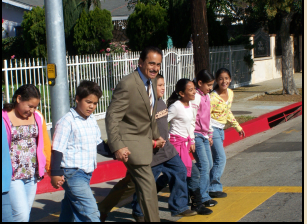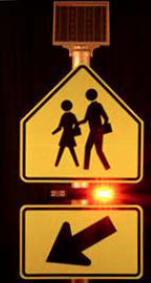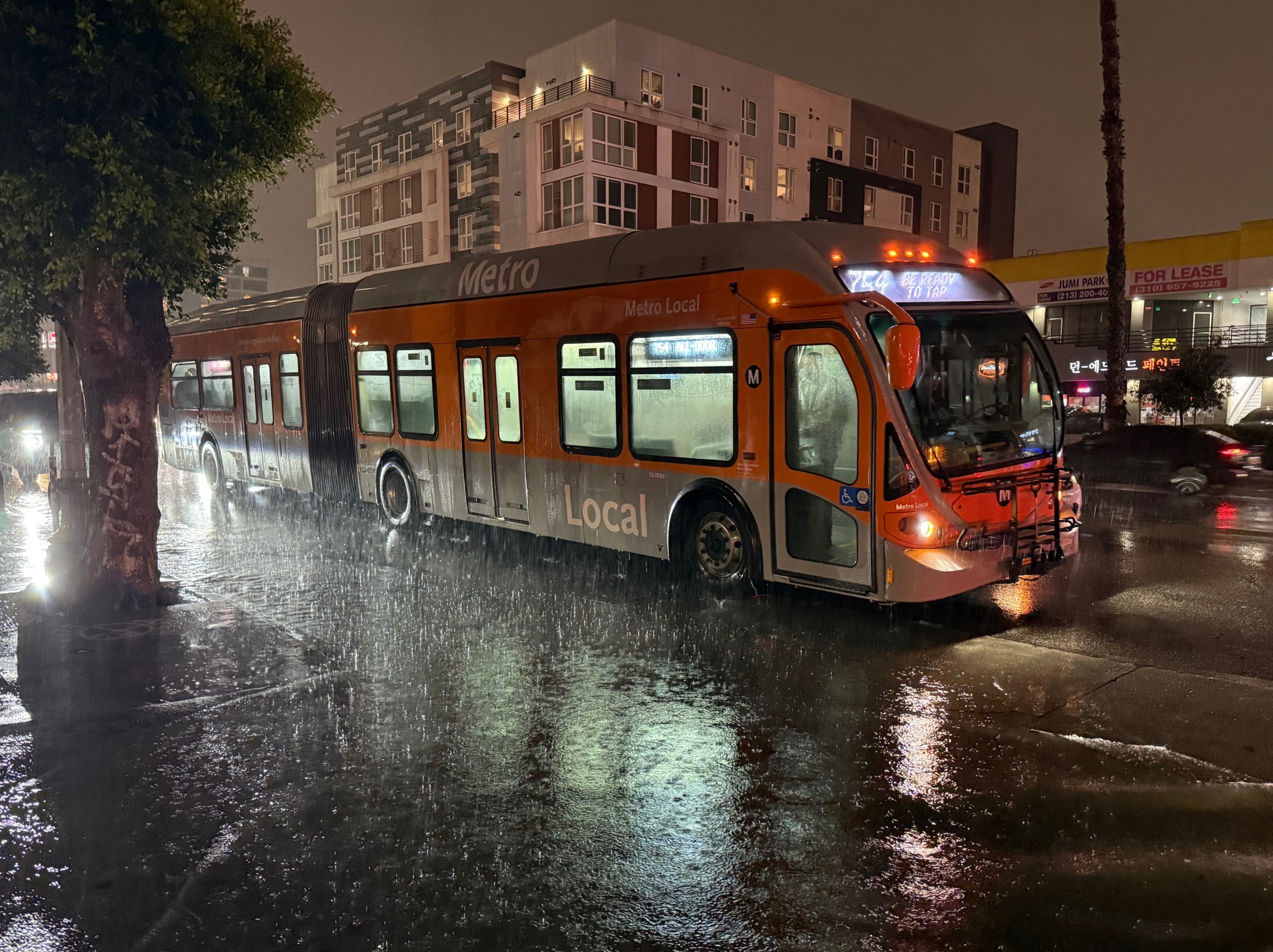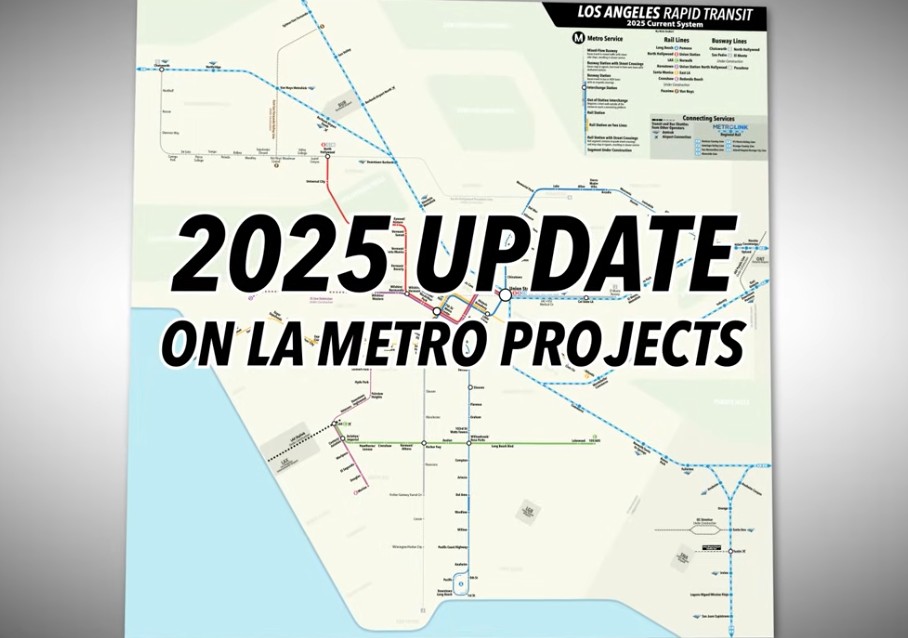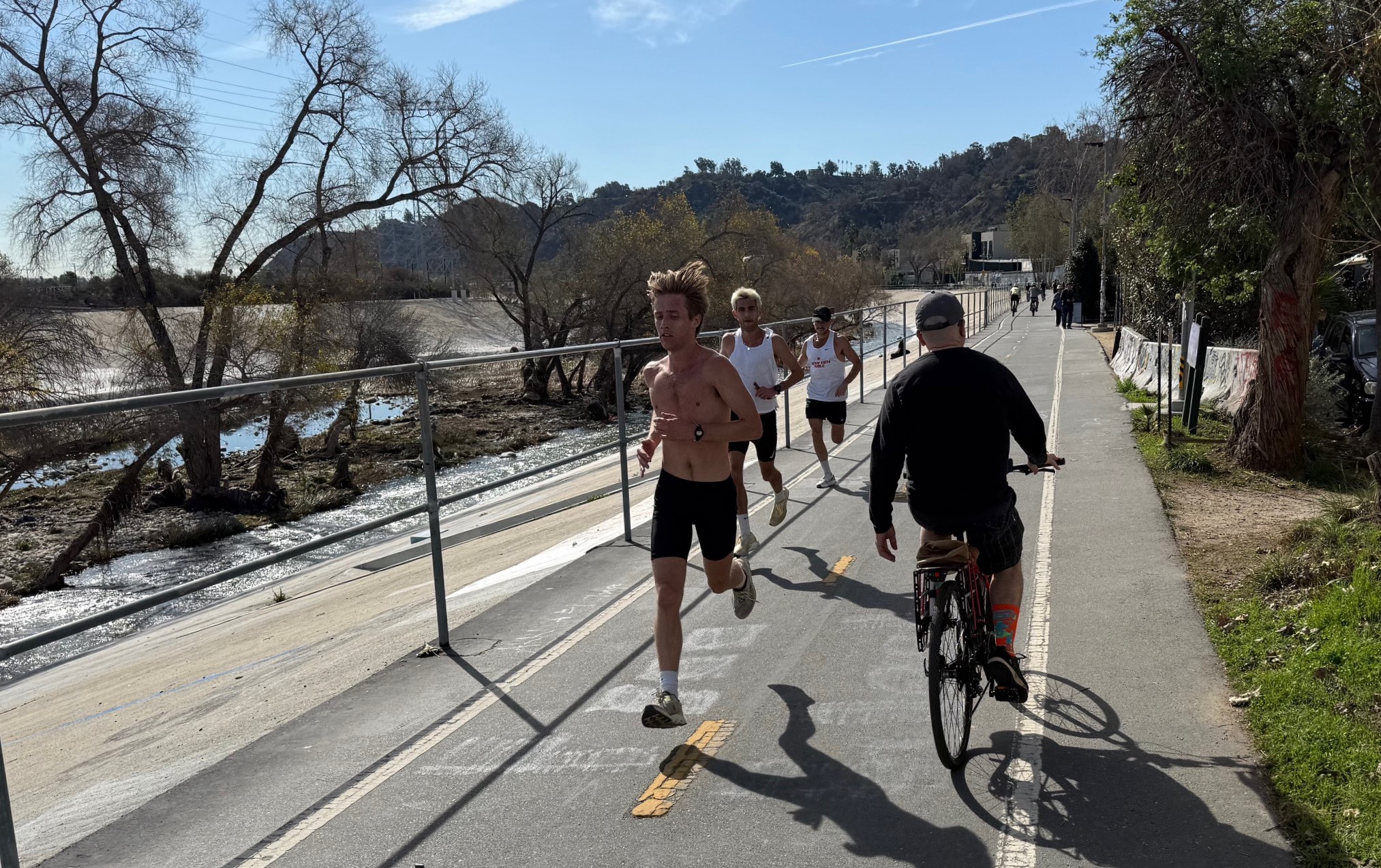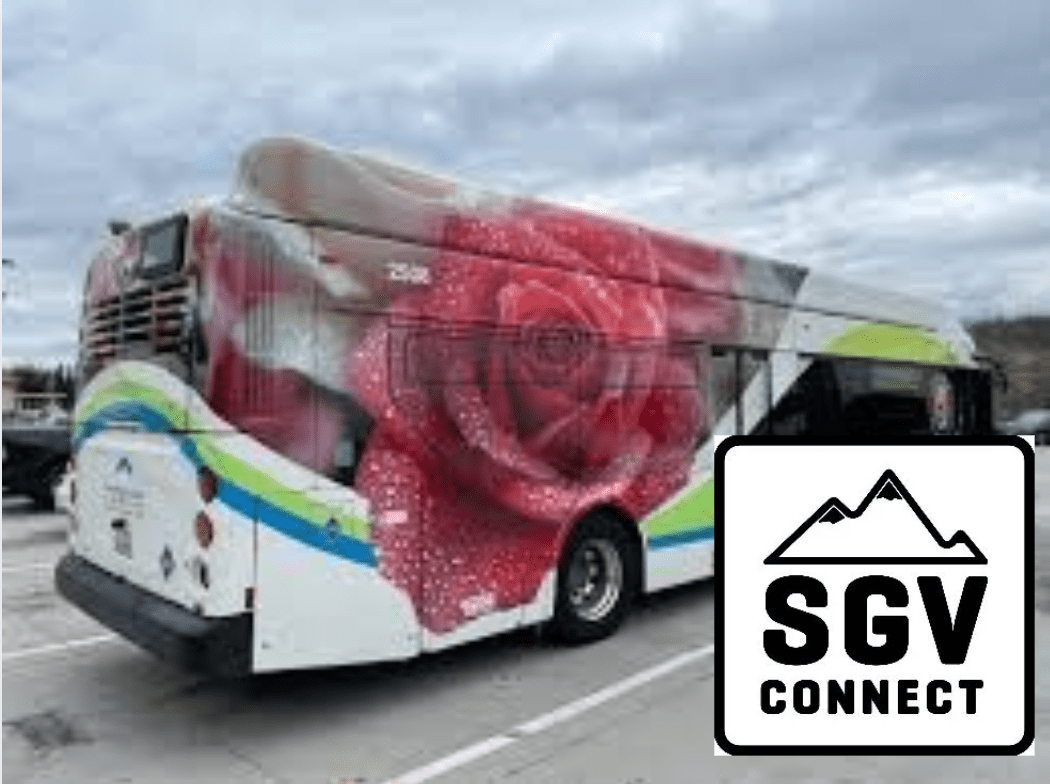(Update: The L.A. Times reports there was more chicanery at City Council today and the motion has been sent back to the Finance and Budget Committee, Chaired by red light camera backer Bernard Parks. Streetsblog still believes that it is wildly unlikely the program should be saved and the Council should focus on what to do with the the money "saved" by killing the program.)
While the Los Angeles City Council didn't formally vote to end the city's red-light camera program, the writing is clearly on the wall. Of the twelve members present, seven voted to end the program, and of the three absent at least Greig Smith has voiced opposition to the program. To raise the bar even higher, Mayor Antonio Villaraigosa is backing the Police Commission's unanimous vote to end the program.
While we thank Council Members Richard Alarcon, Tony Cardenas, Tom LaBonge, Bernard Parks and Jan Perry for their leadership, it's time to turn the page and ask the City Council how they plan to make streets safer for all users if cameras aren't the answer. In opposing the motion to continue the program, Councilman Bill Rosendahl claimed the program cost the city $2.6 million a year and Councilman Paul Krekorian argued that "Every cent we spend on this is a cent we're not spending on something else."
This implies that the City Council is planning on spending the $2.6 million on something else, and not just using it to fix a small part of the City's budget deficit. The question should now be, how can the city most effectively spend those funds.
Obviously, none of the Council stated opposition to safe traffic crossings, although Councilman Dennis Zine is urging motorists not to pay traffic camera tickets after they break the law, and thus the Council ordered a study of whether or not extended yellow lights or short "all red" times in cycles can reduce crashes. A study is a good first step, but as the city moves farther from the recent debate over cameras, the urgency to fund innovative projects is diminished.
So what can be done?
While the City Council passed millions of dollars from Measure R funds for a Safe Routes to School study that would finally allow the city to take a city-wide look at schools most in need of help instead of the political process it has now. However, they failed to fund a position to oversee the study or manage the city's myriad pedestrian safety programs. This unallocated pot of funds could fund dozens of pedestrian coordinators, but the city only needs one.
The group Safer Streets L.A., in their effort to discredit the red light cameras, published a report back in January listing many of the improvements that they felt would provide greater safety benefits than red light cameras. Now that the cameras are all but gone, it will be interesting to see if Safer Streets will live up to their name or whether it was all a ruse to get the cameras removed.
In their report, they note that LADOT has a history of removing marked, but unsignalized, crosswalks because it creates a "false sense of safety" for the pedestrian. Safer Streets, in a laundry list of recommendations, urges LADOT to end this strategy and instead focus on improving these crossings. While a signal is an expensive way to make the crossing safer, there are many less expensive ways, such as:
1) a two-beacon yielding system, pictured at the right, has been shown to increase traffic yielding to pedestrians by over 75%. A four beacon system increases the effectiveness up another 11%.
2) pedestrian safety cones inside of crosswalks yielded a 12% increase in drivers yielding to pedestrians in New York City
3) overhead signs are showing less effectiveness than the less expensive alternative traffic cones, but still show nearly 7% improvements in yielding.
4) The most effective signage solution is the overhead "hawk" signal where a special red-light system is put in for pedestrians. I've seen these crossings used in the Fairfax District of the city to great effect.
While these, and other, signage treatments may make things safer throughout the city, the Council now owes the communities surrounding the 32 intersections they chose to make more dangerous with yesterday's inaction. Councilman Cardenas, and the LAPD's Sargent McWilliams both testified that red light running causes more crashes in L.A. than anything else, yet the Council voted to remove a safety measure.
At a minimum these intersections should see regular LAPD stings to nab red-light runners and those who fail to come to a complete stop before making a right hand turn on red. If the Council believes they can achieve the same 62% reduction in crashes at the intersections that now have cameras just by changing the signal timing, then they should move quickly to implement this signal timing feature across the city.
People are dieing in our streets, and a Council that doesn't act is becoming increasingly culpable in that carnage. There's plenty of treatments that can be applied to roads and signals in addition to more funding being thrown at LAPD Traffic Division. Do you have a favorite plan or idea? Leave it in the comments section.
